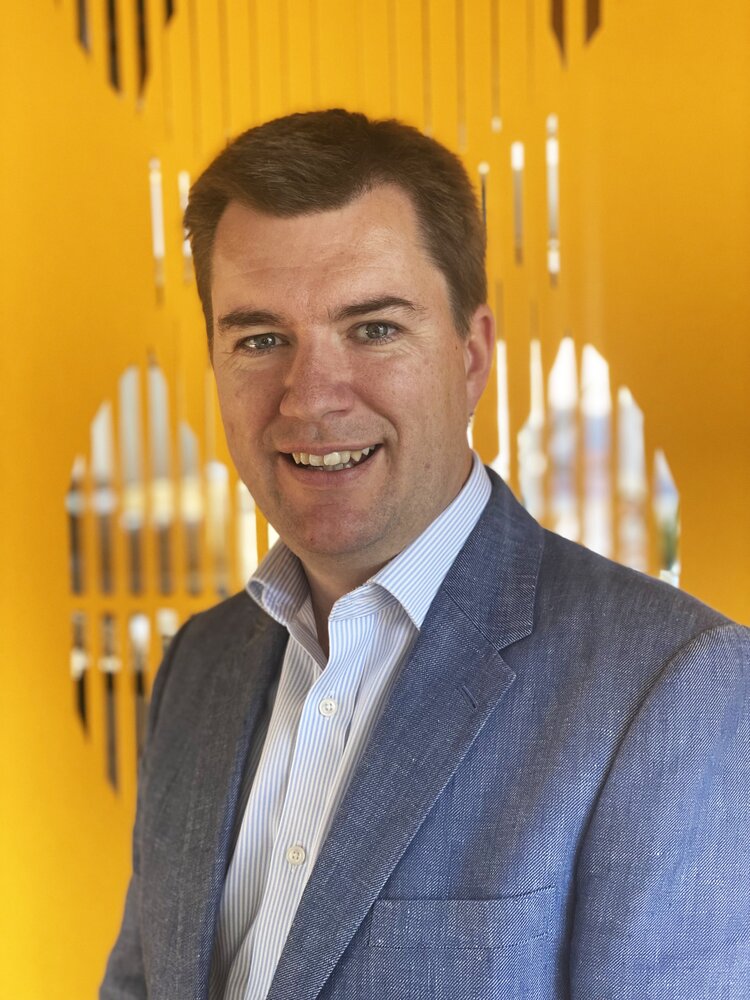Founder of the travel subscriptions start-up Brett Norton tells Travolution that the firm is geared up for growth with a model that aims to revive customer loyalty after plans to launch were put on hold due to the COVID-19 pandemic
_w=800_h=303_pjpg.jpg?v=20230522122229)
Company Profile: Ultimate Travel Club sets out stall to rise to travel's biggest challenges
Rising costs of acquisition amid falling loyalty and eroding margins in travel are the two big challenges the founder of Ultimate Travel Group identified that the travel sector need to address.
The UK-based travel subscription start-up is emerging from the COVID pandemic with a growing conviction that its model will resonate with the modern digital customer.
Subscriptions have taken off in many other sectors, most notably online entertainment streaming, and Brett Norton believes they are the answer to driving customer loyalty and profitability in travel.

He told Travolution that a decade of experience working with hotel brands and the likes of Travelopia, Celebrity Cruises and Riviera Travel taught him travel has two big challenges.
“The biggest challenges are customer acquisition and margin; making travel a profitable industry to be in.
“It occurred to me back in 2018/19 that there must be a better way of giving customers a better proposition that works for both the business and the traveller.”
Norton said he saw how big travel businesses erode their margin with cumbersome back offices and large marketing costs as they are constantly forced to re-acquire customers.
And he said the end result is that the customer does not necessarily get what they want both in terms of the best price or product.
Working with Ultimate Travel Club chairman, Stephen Knight, a former Disney senior vice president, they sat down to work out how to address those challenges.
They mapped out how to bring a subscription model to travel in the UK and were about to launch when COVID-19 hit and travel ground to a halt.

“We were about to press the button before the pandemic but fortunately we did not and we used the pandemic wisely to strengthen the proposition,” says Norton.
“We pulled together a great team at board level and used the time wisely so we really timed our launch as the world started to get back on its feet again.”
The pandemic hiatus was an opportunity to invest in technology, to test and learn and to hone Ultimate Travel Club’s customer offering.
A bespoke price comparison tool was built so users could validate the savings and an engaged community of early adopters was recruited to shape the vision.
These came through a £40,000 crowdfunding campaign which offered them a three-year membership in exchange for their investment.
A £250,000 seed round has just been completed to fund the business this year and another raise is planned for next year before a Series A in early 2024.
“If we stabilise our growth rate and understand the true cost of acquisition of a new member any raise we do will be all about scaling membership quicker,” says Norton.
Digitisation and the erosion of loyalty
Ultimate Travel Club’s aim is to become the sort of Aladdin’s Cave for travel and first port of call for its members, like high street agents of old were once pre-internet.
Norton sees this as a “moving the dial” in the industry, pioneering a Travel 2.0 approach that seeks to combat the growing promiscuousness of consumers in the digital age.
For subscribers, Ultimate Travel Club becomes a personal leisure time concierge where everything from theatre breaks to the annual holiday to restaurant tables are booked.
“Whatever you were looking to book, travel agents used to be your first port of call. Digitisation has eroded some of that
“Consumers are becoming more and more promiscuous and loyalty to some degree is disappearing. You will use different operators to book different types of trip.
“That has an impact on businesses because you are looking for that lifetime value and the return on investment is getting longer and longer.
“Subscription should allow us to become much more sticky for a member. We should be a bit of an Aladdin’s Cave and offer much more of what the user is looking for.
“By creating that level of stickiness you can offer what they want at a fraction of the price of other operators.
“And if the subscription fee is covering our operating overheads we can be much more agnostic about the products we are looking to sell.
“Most travel brands and reliant on Google. It becomes this drug you can’t get off because as soon as you start to withdraw spend your traffic goes down.
“It becomes this never-ending cycle because you are constantly on the chase for new to brand customers.”

Ultimate Travel Club believes it can attract customers throughout the travel journey and keep them, ensuring it has a sustainable business model.
One area it sees potential in is providing closed user groups, like company employees, memberships as part of their employment for work and personal travel incentives.
The club environment the firm is striving to create helps it to understand better what its members like and want and to provide suppliers with a private marketplace to offer deals.
It will also make the online booking experience personalised and simple and, through its partnership with JTA Travel Group, will provide members with a bespoke agent service.
“We know what our members like and what their preferences are. It’s understanding as much of that as possible and bringing personalisation to the back office.
“That means when you log in your experience it tailored to what you like. No two members should get the same experience when they log in.”
Ultimate Travel Club’s private market model means it can negotiate market-leading deals and it aims to be cheaper than the most popular OTAs every time someone searches.
On track to hit 100,000 members within two years
Currently, its in-house price comparison tool shows it is cheaper than Expedia and booking.com 91% of the time, Norton claims, and the average saving is £252.
“There are 9% of occasions where we are not as strong, but with 1.1 million hotels on the platform it’s a good hit rate,” he added.
As well as its multiple suppliers of hotel inventory, Ultimate Travel Club is plugged into feeds for flights, transfers, attractions and car hire. It also offers 11,000 cruise itineraries.
Users can build their own holidays on the platform protected by the JTA Atol and watch the savings accrue with every component, although hotels offer the best opportunity to save.
To give UK members more of a value-add, they can access 25% off 6,000 restaurants, 50% off days out at major attractions and 30% off cinema bookings.
Through a partnership with Holiday Extras members are offered 20% off travel insurance, a saving that might be equivalent to the £99 annual subscription alone.
The firm is aiming to hit 100,000 subscribers within the next two years and says it is on target to hit that based on current trajectory.
It’s first above the line media promotion with Bauer Radio is set to run to the middle of October and this is being backed by activity on social media.
“We’re doubling membership every month,” says Norton, “so there’s an opportunity to exceed our target if that run rate continues. We’re very happy with the direction of travel.”

In the future, Ultimate Travel Club will look to break into overseas markets, although it already has members in 17 countries.
But before that it will broaden the “clubhouse” proposition working with partners to provide incentives to remain relevant even when members are not travelling.
It will look to create member-only exclusive experiences and trips that set it apart from rival travel companies and create a sense of community among its subscribers.
“The over-commoditisation of travel and the erosion of price and margin, makes it harder and harder for businesses to make a profit out of travel,” says Norton.
“That’s why the subscription model is very interesting and why we adopted it. We want to be a pioneer of the club experience.
“Every travel business is there to try to make the biggest margin possible and at times that does mean upselling and cross-selling.
“But our number one objective is to make sure our customers are engaged and if they are we have done our job and we can be truly agnostic about the property they choose.”
The rise of the subscription model in travel
Norton sees signs of a general move to membership, or subscription, models among hotels groups and OTAs in travel but many loyalty schemes rely on discounts to buy that loyalty.
He praises European OTA group eDreams ODIGEO for being “clever” and “quick off the mark” in establishing its Prime model from the ground up.
But he adds: “One of the challenges bigger brands have is how to morph from being a commission-based mark-up business to a subscription business at scale with legacy costs.
“We see conversations happening across the board about how big brands can make subscriptions work and we are very comfortable with that.
“It helps to elevate the concept and bring it to the fore of customers’ minds and we haven’t got the big budgets that the big brands have to do that.”



